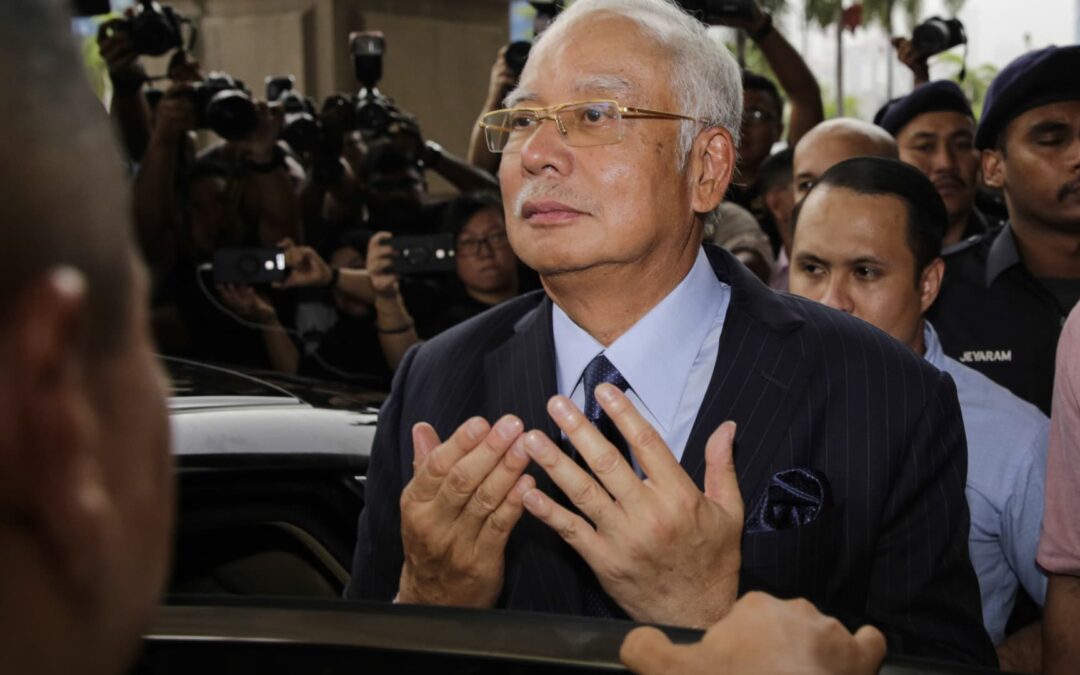Najib Razak, Malaysia’s former prime minister, gestures as he leaves the Kuala Lumpur Courts Complex in Malaysia, on Thursday, Sept. 20, 2018.
Joshua Paul | Bloomberg | Getty Images
Malaysia halved the jail sentence on Friday of former premier Najib Razak, who was convicted of graft and money laundering related to the multibillion-dollar 1MDB scandal, a move expected to raise further questions about Prime Minister Anwar Ibrahim’s commitment to fighting graft.
Anwar campaigned on an anti-corruption platform, but joined hands with Najib’s graft-tainted party, the United National Malays Organisation (UMNO), to form a government in November 2022, after an election that ended in a hung parliament.
The reduction in Najib’s sentence comes amid accusations that the Anwar administration is backsliding on reforms, after a string of graft cases linked to Najib and other UMNO leaders were dropped last year.
Najib, who began serving a 12-year jail term in August 2022, will be released in 2028 and fines imposed on him reduced to 50 million ringgit ($10.59 million) from 210 million ringgit, according to a statement from the secretariat of Malaysia’s Pardons Board on Friday.
The board, chaired by Malaysia’s king, did not give a reason for halving Najib’s sentence. It said if Najib failed to pay the fine given, an additional year would be imposed on his jail term.
The prime minister’s office and representatives for Najib did not immediately respond to requests for comment.
Najib was convicted for graft linked to state fund 1Malaysia Development Berhad (1MDB), from which U.S. and Malaysian investigators estimate $4.5 billion was stolen and more than $1 billion channeled to accounts linked to the former premier.
He applied for a royal pardon shortly after his conviction was upheld by Malaysia’s highest court, making him the first premier in the country’s history to be jailed.
Najib has consistently denied wrongdoing, saying he was misled by fugitive financier Jho Low and other 1MDB officials over the source of the funds and that he believed they were donations from the Saudi royal family.
He remains on trial in several other cases linked to corruption at 1MDB.
Malaysia’s king plays a largely ceremonial role but can pardon convicted people among discretionary powers granted by the federal constitution. The pardons board, which advises the king, includes the attorney-general and government officials.
Najib’s application was among five other pardon bids reviewed on Monday by the board, chaired by Malaysia’s former king Al-Sultan Abdullah Ahmad Shah, its statement said.
Al-Sultan Abdullah ended his five-year reign under Malaysia’s rotating system of monarchy on Tuesday, and was succeeded by Sultan Ibrahim Sultan Iskandar from the southern state of Johor.
News of the pardons board meeting earlier this week had sparked a wave of media speculation, with one prominent Malay-language newspaper forced to withdraw a report citing sources saying that Najib had been granted a full pardon.









